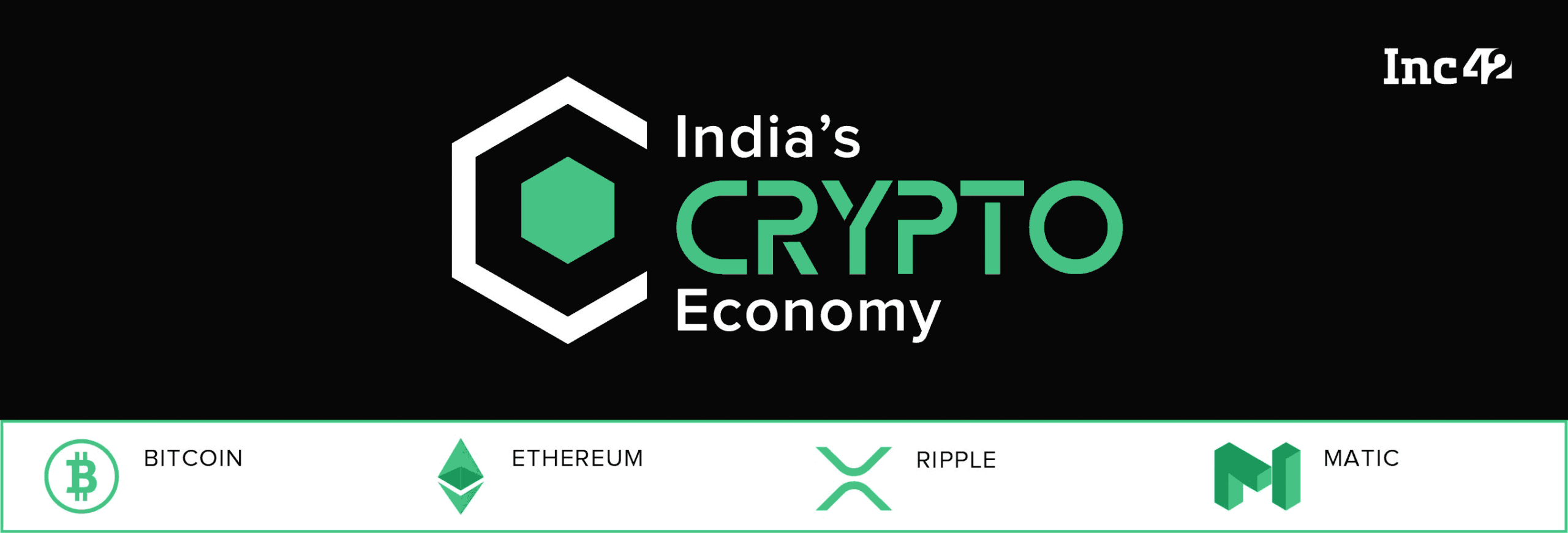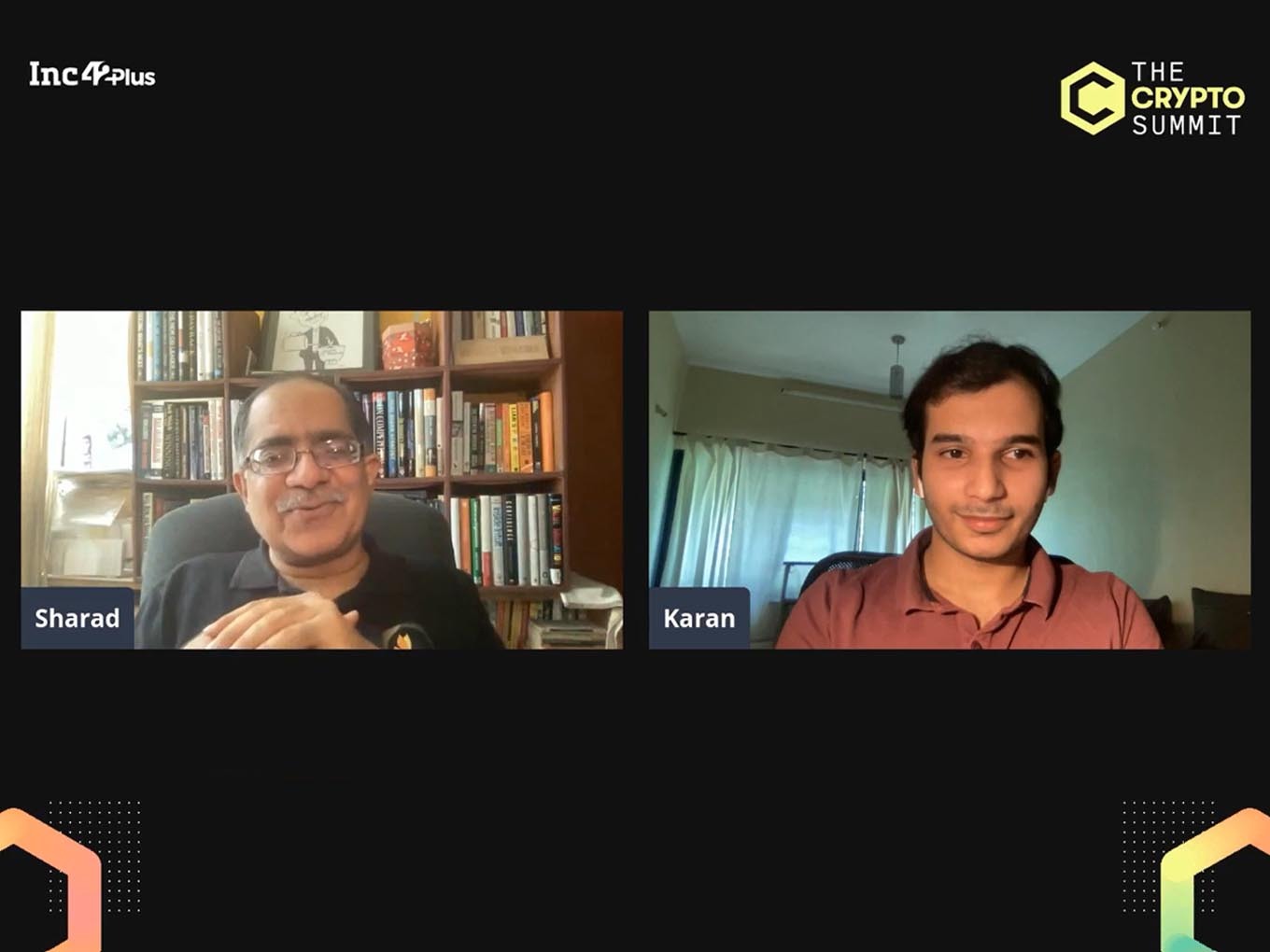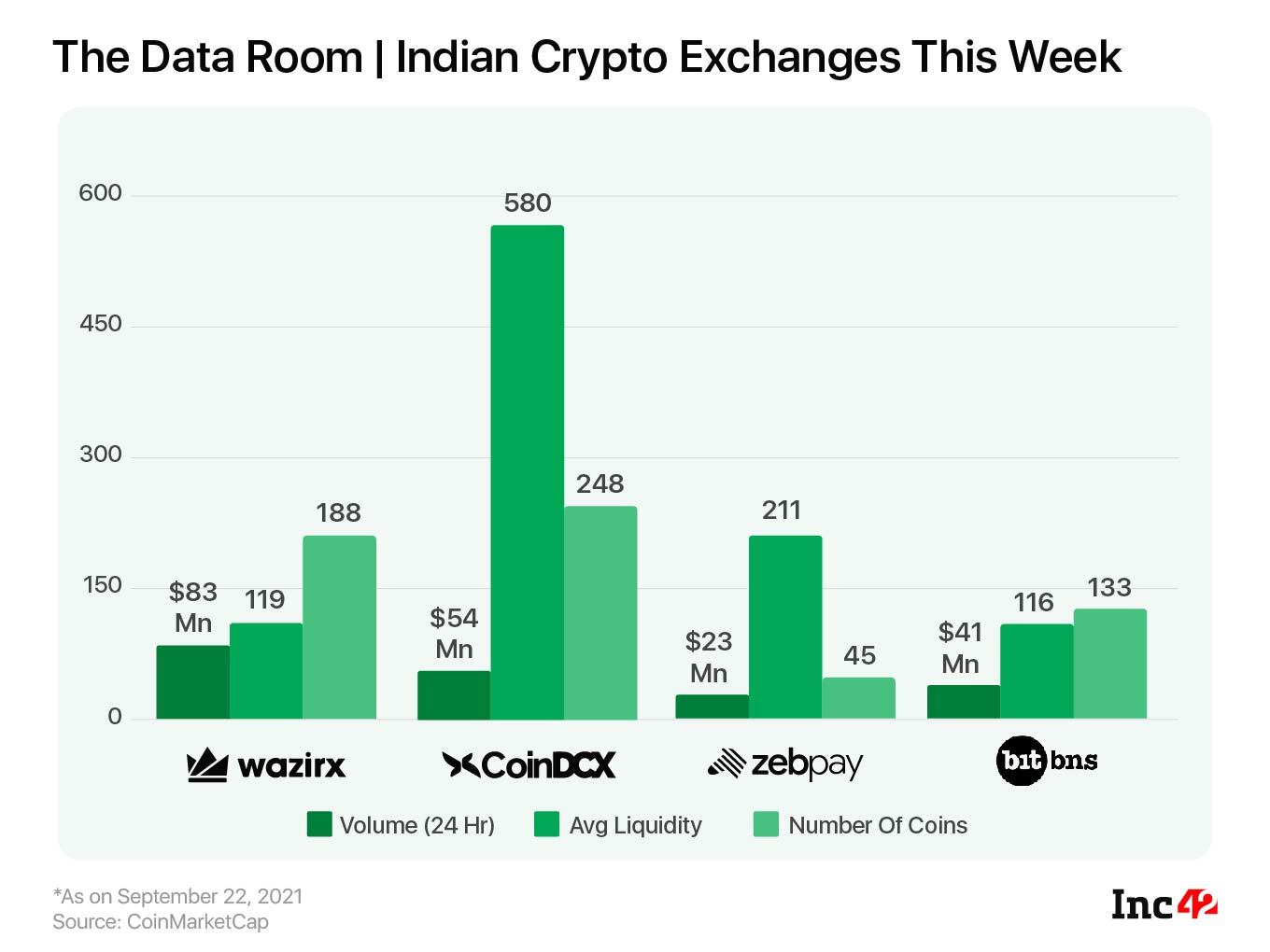

Dear Reader,
Google Glass was probably ahead of the curve. But the metaverse is definitely the future. Here is a quick look at what the tech giants are doing to validate our point:
- Apple is building a metaverse substrate
- Amazon is developing the Open 3D Engine, an open-source future gaming project led by Linux Foundation
- Facebook aims to be a metaverse company a few years down the road
- Microsoft is working on a phygital foundation for building a metaverse apps’ ecosystem
However, the big road to metaverse — Web 3.0 — relies on blockchain technology, whose business value is set to hit $360 Bn by 2026 and $3.1 Tn by 2030.
But for us, the question is: How will India seize this opportunity?
Most speakers and crypto enthusiasts at last week’s crypto summit organised by Inc42 Plus thought India would be a hotbed of blockchain and crypto.
Speaking at the two-day conference by Inc42 Plus in association with CoinSwitch Kuber, Ashish Singhal, cofounder and CEO of CoinSwitch Kuber, said, “The government’s use of blockchain technology is expected to grow rapidly. India missed out on Web 1.0 and Web 2.0. But innovators will take Web 3.0 solutions built on blockchain from India to the world.
The next Google or Facebook based on blockchain technology will come from India. Crypto and blockchain will bring more Indians into their fold with real use cases, and the government will support those use cases. More than a billion people will be connected to the crypto ecosystem.”
Blockchain forensics firm Chainalysis also reported that the US and China slumped to 8th and 13th spots, respectively, in the Global Adoption Index 2021, from their previous ranks of 4th and 6th. In contrast, India jumped from 11th to the 2nd position in 2021.
The growth is also validated by numbers. Globally, the number of crypto users reached 100 Mn earlier this year, while it surpassed 15 Mn in India. This means there is one Indian in six or so crypto users. Similarly, out of the 7,730 blockchain companies listed on Crunchbase, 277 are located in India.
Putting India On The Global Blockchain Map
Indians are leading many crypto innovations, alongside the global ecosystem. Be it Polygon (previously Matic), founded by Sandeep Nailwal and Jaynti Kanani, Solana by Raj Gokal and others, FalconX by Raghu Yarlagadda and Prabhakar Reddy or former Coinbase CTO Balaji Srinivasan anchoring angel investments in crypto startups globally.
While Solana, regarded as the fastest-growing blockchain ecosystem, currently has more than 400 projects spanning DeFi, NFTs, Web3 and more, Polygon features 500+ decentralised applications, with approximately 200 projects in the pipeline.
According to Raj Gokal, cofounder of Solana Labs, India is the second-largest market for the company, and its goal is to build a vibrant ecosystem for retail users, DeFi and core crypto developers in the country.
“More than 1,000 projects have taken over Solana since its inception. Every day, four-five projects are being announced on Twitter. More than 2,000 transactions are being processed every second on the Solana network, and the average transaction cost is $0.00025,” Gokal said during the conference.
Similarly, Polygon has crossed 310 Mn transactions from 1.8 Mn+ unique wallets. The company recently acquired Hermez, another Ethereum-based layer-2 zero-knowledge rollup (ZK rollup), for $250 Mn to strengthen its position in the industry. ZK proofs use mathematical statements without revealing the underlying data.
In a conversation with Nitin Sharma, general partner and global blockchain lead at Antler, Nailwal of Polygon said that bringing India on the global map is his personal mission.
Sharing his experience at The Crypto Summit, Nailwal recounted how coming from India had made things more difficult for Polygon. To begin with, it had to set up two separate entities, one based in India and another in Singapore. The India unit is limited to extending research and IT support to the Singapore entity and the latter is in token issuance.
In fact, crypto winters lasted much longer in India than the global ones. Nailwal said that despite a lot of buzz, the company had seen very few investors in the beginning.
This has to change.
“Whenever there is an Indian startup, we intend to invest even if they are not interested in using Polygon or could be possible competitors,” said Nailwal.
But there is a brighter side. Global giants like Binance, Coinbase, Bithumb, OKEx and Gemini have already set up their base in India. Some of them, like Coinbase, are on a hiring spree. Others like US-based Kraken, Bitfinex from the British Virgin Islands and Seychelles-based KuCoin are reportedly in the process to enter the Indian market soon.
Global blockchain networks such as Polkadot and Tezos are also zooming in on the Indian market. While Polkadot recently organised the Polkadot Buildathon in India with a prize pool of $14K, Tezos India is running 13+ projects and has trained more than 2,000 students regarding Tezos.
As India is rapidly becoming the new blockchain Mecca, will talent creation and regulatory support work in tandem to develop a Web 3.0 success story?
In Spotlight | India’s Crypto Stack

Interestingly, there is another reason that will push India on the global map. It is crypto’s integration into the India Stack APIs. The iSPIRT Foundation, a volunteer-based technology think tank, plans to build a crypto stack in sync with Indian MSMEs’ loan requirements.
Speaking at The Crypto Summit, Karan Desai, a volunteer at iSPIRT, said that the MSME credit opportunity could be INR 20-25 Tn. However, only 10% of the credit finance comes from the formal sector.
“With the help of crypto, we are trying to find solutions to such real-world problems,” said Desai.
iSPIRT is currently developing its open-source Project Sakhi to push capital from the crypto market (around $2.2 Tn) into the Indian MSME market. It also aims to leverage the DAP Fund to source funding in crypto and make loans available to MSMEs in INR/USD.
The DAP Fund will channelise locked liquidity tokens, and hence, it will be an on-chain receiving fund facilitating off-chain disbursals. According to iSPIRT cofounder Sharad Sharma, GIFT Gujarat’s IFSC can be a possible regulator to enable this ecosystem.
For Binge Reading
The Cross-Consensus Message Format: As the messaging format XCM is ready for release, Polkadot founder Gavin Wood explains the difference between cross-chain and cross-consensus-based messaging format XCM and the latter’s anatomy. Read it here.
Use Of Cryptocurrencies For Terror Funding: Transactions associated with terrorist financing (TF) in 2020 accounted for less than 0.05% of the entire illegal transaction volume. However, the Taliban’s palingenesis has impacted the trend. Coinbase’s special investigations team has released a report on crypto’s use in terror financing. Read it here.

News Doing The Rounds
Unocoin Launches FASTag Payment Services
Bengaluru-based crypto exchange Unocoin has introduced FASTag payment services that will allow crypto users to recharge their FASTag accounts.
FASTag enables cashless toll collection across toll roads with the help of electronic devices that use radio frequency identification (RFID) to transfer payments from prepaid wallets or linked savings accounts. The scheme is operated by the National Highways Authority of India.
Belfrics To Resume Crypto Operations In India
After shutting down its India operations post the RBI diktat issued in April 2018, the Kuala Lumpur-headquartered Belfrics Group will now invest $15 Mn to resume and expand its business operations in the country.
New Street Technologies Raises $4 Mn
The Bengaluru-based blockchain startup raised $4 Mn in a follow-on round from a group of private investors led by Vittal Kadapakkam in the US, prominent Indian bankers, and existing investors including Unitus Ventures and Mohit Davar and others. The company currently operates in India, the UAE and parts of Asia and plans to enter the Americas, Europe and Africa.
The Big Question | Who Will Regulate Crypto
In the end, we leave you to listen to this fireside chat on one of the hottest topics: Who is going to regulate crypto in India? Will it be the RBI, SEBI, IFSC, GIFT or a completely new entity? Subhash Chandra Garg, former secretary, ministry of finance, shares his opinion with 3One4 Capital’s managing partner Siddarth Pai.
Till Next Week
Suprita Anupam
The post India’s Crypto Economy | Will India Be The World’s Crypto Factory? appeared first on Inc42 Media.
0 Comments